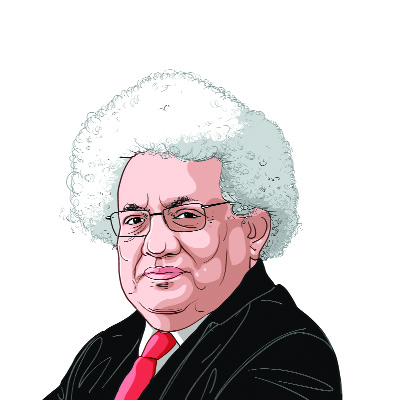Opinion Kaun Banega Rashtrapati
The founding fathers of the American Republic distrusted the people.
The founding fathers of the American Republic distrusted the people. They saw to it that neither the president nor the senators would be chosen by the voters. Alas for all their caution,history took its toll and the people asserted themselves. Though the American president is still chosen formally by an electoral college,the college itself is chosen by the people. Similarly,senators began to be popularly chosen early in the twentieth century.
The French presidential elections,which await the second round,remind us that the fifth republic replaced the fourth republic which had a weak formal president and an active prime ministerial system. The fourth republic failed to tackle the most urgent problems of post-war France and had to be dissolved. The fifth republic has an executive president elected in two rounds along with a prime minister chosen by the majority in the national assembly. This means that the prime minister and president may belong to different parties-co-habitation as it is called. Constitutions are not eternal nor irreparable. They need tweaking if the needs of the people fail to be addressed by the system at hand.
The election of the President of India for 2012 is perhaps the most fraught in a long while. Normally,the process is opaque but a name emerges which is then swiftly agreed upon. Contests are unusual. The exception is the 1969 election when Indira Gandhi divided the nation by backing a candidate who was not the nominee of her own party. She then split the Congress Party and the rest is history.
Indian politics has never been so divided and so weak at any other time in the last 65 years. This is why so much uncertainty hangs around the election of the president. No single party or coalition formation is confident of commanding the numbers which would see its candidate elected. The two major coalitionsUPA and NDAare aware of this powerlessness. Smaller regional parties-SP,BSP,TMC,AIADMKare playing a freelance role of hired guns on either side.
The mistake is to seek consensus around a single candidate. Such a consensus does not exist at present in the political system. Yet there is also fear of a contested election as this will expose the fragility of the two largest parties. An open contest with many candidates could be a welcome revelation of the tensions within the system and the manner in which such tension will be reconciled to zero in on the chosen candidate. What in effect is happening is that there are going to be shadow stages before the actual elections in which candidates will be sifted and eliminated without a transparent process, which the electoral college,as well as the people at large,will watch in impotent silence. This,though most likely,is also the least desirable option for the country.
Proud as India is of its democracy,it knows that the governance generated by this democracy is singularly lacking in quality of decisiveness let alone integrity. People like the electoral exercise but know that its results are distinctly disappointing. Even so it is better to trust the people to make judgments about their welfare than trust the political leadership.
If the political system will not open up the process of the election of the president,it is up to the people to stage a popular contest. Civil society should take a lead in polling the people to find out what sort of president they want. After all,given the predictable results of 2014,the president will be crucial in selecting which coalition gets the nod. The president in such a situation cannot be partisan and must inspire confidence in his/her ability to ensure fair play. Recent experience in European democracies shows that the choice of a viable government may take a long time before one is chosen which can command a majority. Belgium took more than a year to decide.
What we need now is for various civil society organisations to come together and stage a presidential contest among the people. This is a national matter and so voting should be nationwide regardless of states and their legislative chambers. Let the people sift among likely names and arrive at three or four most likely. This will let the leaders know what the people want.




